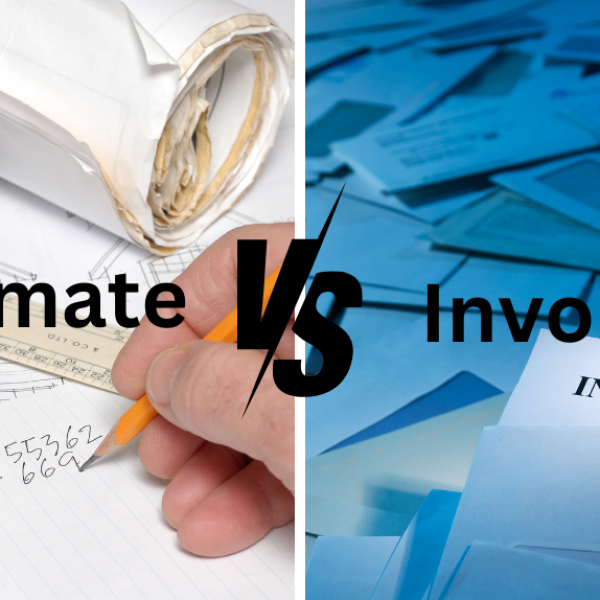Spending through Visa, one of the leading card networks, will be around $12 trillion by the end of 2024, and that’s only one card network. This rise in cashless transactions highlights the importance of partnering with a merchant acquirer capable of facilitating secure and seamless credit and debit card payments.
Whether you are a merchant or a retailer operating online or in-store, you should know what is an acquirer and its role in the payment process. Keep reading to unravel a merchant acquirer’s function and learn how card payments are processed from your customers to your business.
In This Article
ToggleWhat is an Acquirer?
An acquirer is a financial institution that serves as an intermediary between your business, card networks or schemes, and banks. When a customer inputs their card details or uses contactless payment, the acquirer is responsible for obtaining authorization from the customer’s card issuer, processing the transaction, and securely depositing the funds into your business account.
Also known as a merchant acquirer or acquiring bank, these terms all refer to the same entity: the institution that manages complex card transactions. Additionally, acquirers may offer payment processing services and supply the necessary technology and hardware for businesses to accept card payments.
Acquirers are crucial in handling sensitive payment information and must adhere to strict regulations. Financial regulators and card schemes must license them and comply with the PCI DSS’s (Payment Card Industry Data Security Standards Council) security standards. This ensures that businesses handle customer information carefully.
Working directly with an acquirer or a payment processor offering acquiring services enables businesses to accept card payments while meeting legal and regulatory standards.
What Roles Does an Acquirer Play in Transaction?

An acquirer, or an acquiring bank, is a financial institution essential in processing merchant credit and debit card payments. Here’s an overview of the acquirer’s responsibilities:
- Transaction Processing: Acquirers process credit and debit card transactions. They collect transaction details from merchants and relay this information to the cardholder’s issuing bank to secure authorization.
- Merchant Account Management: Acquirers supply merchants with the necessary accounts to accept card payments, enabling merchants to receive funds from these transactions.
- Security and Compliance: Acquirers assist merchants in adhering to payment card industry standards like PCI-DSS, ensuring transactions are secure and customer data is protected. They also implement fraud detection systems and security measures to protect the integrity of transaction processing.
- Fund Settlement: Acquirers are responsible for settling funds after obtaining authorization and processing a transaction. They ensure that money from the cardholder’s bank is transferred to the merchant’s account and deduct any applicable transaction fees.
- Dispute and Chargeback Management: Acquirers manage disputes and chargebacks arising from transactions. They represent merchants in resolving these issues, which may include retrieving funds in cases of fraud or disputes over transactions.
- Reporting and Analytics: Beyond processing transactions, acquirers provide merchants with valuable insights through detailed reports and analytics. They analyze transaction data to help merchants better understand customer behavior, sales trends, and other vital metrics that can shape business strategies.
Where Does the Merchant Acquirer Fit Into the Credit Card Transaction Process?

The merchant acquirer plays a crucial role among several entities involved in a credit card transaction. Here’s a breakdown of the credit card transaction lifecycle to understand the merchant acquirer’s role:
Step 1: Payment Information Submission and Routing
The customer submits their credit card details to the merchant through a card terminal, website, or phone.
The credit card processor forwards the credit card details via a payment gateway to the credit card network (e.g., Visa, Mastercard).
Step 2: Communication with the Issuing Bank
The credit card network contacts the issuing (cardholder’s) bank to review the transaction. The network assesses whether the customer has adequate funds and decides whether to approve or decline the transaction.
Step 3: Issuing Bank’s Validation
The issuing bank sends its decision—approval or denial—back through the network to the processor. This decision is based not only on fund availability but also on potential fraud concerns.
Step 4: Hold by Issuing Bank
If approved, the issuing bank places a hold on the funds. It is important to note that the issuing bank initially covers the payment amount, with the cardholder reimbursing the bank later, possibly with interest.
Step 5: Settlement of Transactions
The merchant processes and settles the day’s transactions at the close of business, aided by the payment processor.
Step 6: Transfer to Merchant Acquirer Depositing Funds
The card network facilitates the transfer of approved transactions to the issuing bank, which then releases the funds to the acquiring bank.
Finally, the payment processor instructs the acquiring bank to deposit the funds into the merchant’s account after deducting any interchange fees and processing costs. These substantial fees can lead many B2B merchants to refrain from accepting credit card payments. However, credit card surcharging and interchange optimization can help mitigate these expenses.
What’s the Difference Between an Acquiring Bank and an Issuing Bank?
The primary distinction between acquiring and issuing banks lies in their roles within the transaction process. The acquiring bank manages the merchant’s account, while the issuing bank oversees the cardholder’s account. During a transaction, funds move from the cardholder’s account at the issuing bank through the payment process to the acquiring bank.
Responsibilities of the acquirer include:
- Receiving payment requests from payment gateways.
- Contacting card schemes (such as Visa or Mastercard) to request payment authorization.
- Communicating the payment’s approval or rejection back to the merchant.
- Depositing the funds—after deducting fees—into the merchant’s account.
Responsibilities of the issuer include:
- Issuing credit or debit cards to customers.
- Verifying cardholder details during transactions.
- Ensuring there are sufficient funds or credit available to complete the payment.
- Transferring funds to the acquirer following successful authorization.
What is the Role of a Payment Processor?
The payment processor plays a crucial role in the payment ecosystem, facilitating communication between the acquirer and issuer during transactions. As transactions occur, they require a secure and efficient way to communicate with each other, and that’s where the payment processor steps in. Payment processors provide the hardware and software that enable merchants to initiate transactions by accepting card and digital payments.
They handle the transaction request using advanced security measures like encryption and tokenization to safely transmit data to all parties involved, including acquirers, issuers, and card networks. A reliable payment processor not only facilitates the transfer of funds between accounts but also monitors transactions for potential fraud and maintains a record of all transaction activities.
Understanding the Acquiring Fees
The acquirer charges a fee for processing transactions, commonly known as the merchant discount rate, typically a percentage of the transaction volume. The complexity arises in the breakdown of your total transaction costs. These costs, often billed by the acquirer, consist of several fees levied by different entities involved in the transaction process.
Key players in this process include card schemes and issuing banks, which impose scheme and interchange fees. Other contracted entities may charge fees for specific transaction-related services like authentication (e.g., 3D Secure), tokenization, risk management, gateway services, and payment terminals.
Some acquirers opt for a blended pricing model, charging a flat fee for all transactions without specifying the distribution among the parties involved. This model simplifies understanding of the total cost but lacks transparency regarding allocating fees to specific parties.
Conversely, other acquirers use an Interchange++, Interchange+, or Cost pass-through model, which itemizes the fees shared with other parties on your invoice. This more transparent approach ensures you only pay the actual charges from these entities instead of a fixed rate under blended pricing. When selecting an acquirer, it’s crucial to understand the detailed breakdown of all costs to ensure you are receiving fair pricing for each service provided.
Does It Mean That You Need a Merchant Acquirer to Start Accepting Payments?
Whether or not you need a merchant acquirer to start accepting payments depends on your company’s specific needs.
If your business involves charging credit cards via a card reader, POS system, or a Virtual Terminal, you’ll typically use these services through a payment provider. In this scenario, as the merchant, you won’t need to sign a direct contract with a merchant acquirer—the payment provider handles that relationship.
However, if your company processes payments internally, you’ll require a merchant acquirer unless your financial team is equipped and funded to act as its acquirer.
Most businesses work with a payment provider, paying a transaction fee for each payment. In this setup, when you accept a card payment, the payment provider forwards the transaction to their merchant acquirer, who then routes it to the card scheme and finally to the customer’s card issuing bank.
Key Considerations When Choosing a Merchant Acquirer
If you’re in the market for a merchant acquirer to process payments, here are essential factors to consider before making your choice:
- Seamless Integration: Look for flexible solutions for both point-of-sale and online transactions. For eCommerce, assess whether they offer integration options like hosted payment pages, client-side encryption, or server-to-server connections that best fit your needs.
- Broad Payment Options: Ensure they support various card types and schemes (e.g., Visa, Mastercard), and consider if they offer alternative payment methods like mobile payments to expand your market reach and meet evolving consumer demands.
- Advanced Fraud Protection: Ensure they are up-to-date with industry changes such as Strong Customer Authentication (SCA) and 8-digit BINs. They also provide effective risk and fraud management tools to safeguard your business and handle disputes effectively.
- Efficient Onboarding: Competitive acquirers should efficiently handle all necessary documentation to verify your business and understand your processing needs, allowing immediate transaction processing.
- Local Acquiring: Choose an acquirer that supports your target markets to enhance payment acceptance in critical regions.
- Transparent Pricing: Verify they have a clear list of prices and fees. Understanding interchange fees and pricing structures is crucial.
- Funds Settlement: Inquire about the process for receiving settlements and accessing your funds.
- PCI Compliance: Ensure the acquirer meets PCI DSS standards to process card transactions securely.
- Multi-Currency Support: Your acquirer must be able to process and settle transactions in multiple currencies that your customers prefer.
- Subscription Transactions: If your business model includes recurring payments, select an acquirer that supports these seamlessly with advanced APIs.
- Data Analytics: Check if they provide comprehensive monitoring and reporting tools to help optimize acceptance rates and enhance business performance.
- Customer Support: Confirm the availability of personalized support through a designated Account Manager.
Conclusion
The pivotal role of a merchant acquirer in payment processing cannot be overstated, particularly amid the surge in cashless transactions. As spending through card networks is projected to reach $12 trillion by 2024, businesses must grasp the significance of partnering with a reliable acquirer. Acquirers are responsible for transaction authorization, processing, and adherence to security standards, ensuring seamless payment acceptance while safeguarding sensitive data.
Selecting the right acquirer involves considering integration options, payment variety, fraud protection, transparent pricing, and robust customer support. Ultimately, embracing the services of a merchant acquirer is essential for businesses seeking efficient and secure payment processing solutions in today’s digital landscape.
Frequently Asked Questions
What is an acquirer?
An acquirer, also known as a merchant acquirer or acquiring bank, is a financial institution that facilitates businesses’ acceptance of credit and debit card payments. They manage transaction processing, including authorization and fund transfers, ensuring merchants receive payments securely and efficiently.
Why do I need an acquirer for payment processing?
Acquirers provide merchant accounts necessary for card transactions, handling authorization, settlement, and fraud prevention. They play a vital role in ensuring merchants receive payments and comply with security standards like PCI DSS.
How does an acquirer fit into the payment process?
In a card transaction, the acquirer receives payment requests from merchants, forwards them to card issuers for approval, and facilitates fund transfers. This process involves intricate communication among the merchant, acquirer, card network, and issuer, ensuring successful transactions.
What should I consider when choosing an acquirer?
Consider factors like fee structures, supported payment methods, security compliance, and customer support quality. Evaluate their ability to handle various card schemes and international transactions and their expertise in managing chargebacks and disputes for smooth payment operations.










